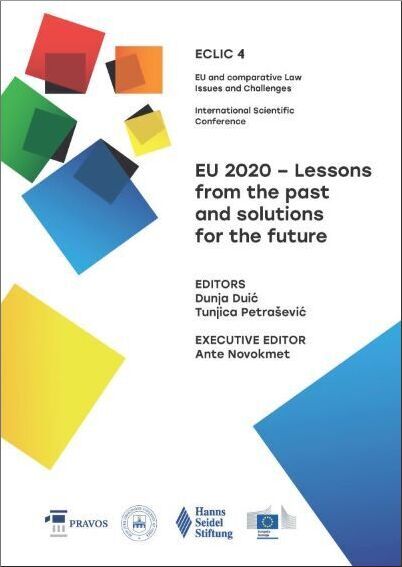IMPORTANCE OF THE PROTECTION OF PRIVACY OF JUVENILE SUSPECTS OR ACCUSED PERSONS IN CRIMINAL PROCEEDINGS IN THE CONTEXT OF THE EU LAW
DOI:
https://doi.org/10.25234/eclic/11917Abstract
The protection of privacy of juvenile suspects or accused persons in criminal proceedings is one of the fundamental principles of juvenile criminal procedure. The aim of this right is to prevent any unnecessary stigmatisation and labelling of juveniles suspected/accused as perpetrators (of criminal act) by their peers or others in their community. The involvement in a formal criminal proceeding can be very stressful for a juvenile and affect their further development and mental health. The protection of privacy during criminal proceeding helps them in their rehabilitation and reintegration into society after conviction. Countries usually protect the juveniles` right to privacy by closing the criminal proceeding for general public and by restricting the disclosure of information about criminal proceedings involving juveniles as suspects or accused persons to the media. In practice, this means that a limited number of people in criminal justice system has the right to access information about suspected/accused juveniles. Unfortunately, the present-day media often neglect this right and use information about juveniles in criminal proceeding in their news reports in a sensationalist way in order to increase their circulation. That kind of practice shows that this right is considered irrelevant and that the media and general public do not have appropriate knowledge about the importance and reasons why this right has been incorporated into the juvenile criminal procedure. This paper analyses the importance of the protection of privacy of juveniles who are suspects or accused persons in criminal proceeding according to the international documents, ECHR, the relevant case law and the Directive EU 800/2016 with reference to the legislative solutions found in some EU Member States including Croatia.
Downloads
Published
How to Cite
Issue
Section
License
Copyright (c) 2020 Ivana Radić

This work is licensed under a Creative Commons Attribution-NonCommercial 4.0 International License.
Authors retain the copyright on the papers published in the Journal, but grant the right of first publication to the Journal. Papers accepted for publication or already published in ECLIC of the Faculty of Law in Osijek may be published by the author(s) in other publications only with proper notice of its previous publication in ECLIC.


